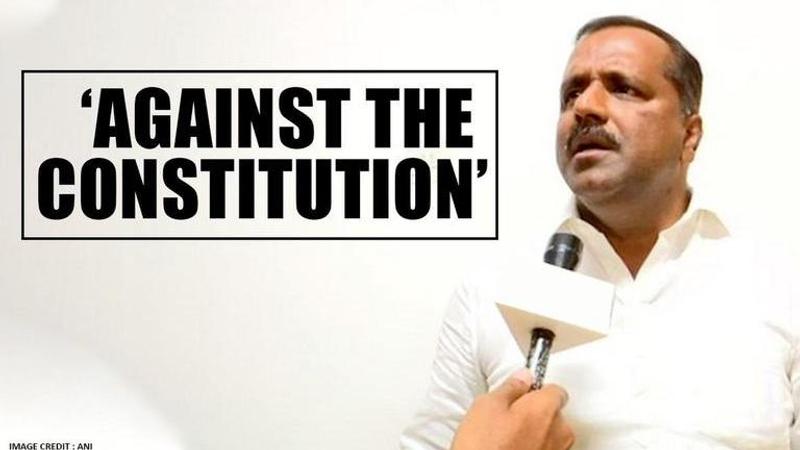Published 11:33 IST, February 19th 2020
Karnataka Congress MLA calls CAA unconstitutional; 'can't give citizenship on caste-creed'
Karnataka Congress MLA UT Khader on Wednesday spoke about CAA and stated that the new citizenship law is against the Indian constitution

Amid the protests over the CAA, NRC and NPR, Karnataka Congress MLA UT Khader on Wednesday called out the Central government over the passing of the Citizenship (Amendment) Act and stated that the act violates the Constitution.
While interacting with a news agency, Khader said, "The new citizenship amendment bill is unconstitutional. The citizenship cannot be given on caste and creed basis. Because of these things we are fighting against it."
Non-BJP states boycott CAA
Various non-BJP and opposition ruling states have decided to not implement the amended Citizenship Act. Madhya Pradesh, West Bengal, Kerala, Punjab, and Rajasthan have refused to implement the Citizenship Amendment Act (CAA) and the proposed NRC in their respective states.
In a special assembly session held on February 12, the Puducherry assembly passed a resolution against the citizenship amendment act which was boycotted by the principal opposition party NR Congress and AIADMK MLAs.
Congress calls CAA to be a 'malicious and mischievous' law
Earlier on February 8, former Home Minister and Congress leader P Chidambaram had called CAA to be a "malicious and mischievous" law.
While talking at an event at Pune, Chidambaram said, "We are opposing the Act based on constitutional morality and constitutional legality. Right now, the ball is in the Supreme Court and we are confident that it will strike down (the law) and redeem the honour of the people of India." While talking about the alleged discrimination, he said, "We are just asking if persecuted Hindu minorities from these three countries are allowed, then why not Tamils and Hindus from Sri Lanka, Burma, and Buddhists from Nepal and Bhutan are allowed."
About CAA
The CAA seeks to grant citizenship to Hindus, Sikhs, Buddhists, Christians, Jains, and Parsis who had arrived in India by December 31, 2014, from Pakistan, Afghanistan, and Bangladesh to escape religious persecution. Opposition parties say the law is against India's Constitution as it makes religion a ground for citizenship.
The country has been witnessing protests against the legislation since its passage in Parliament in December 2019, with protesters arguing that the CAA in combination with other citizenship measures like the National Population Register and the National Register of Citizens can be used to discriminate against people. Meanwhile, Prime Minister Narendra Modi-led government has denied the charges.
Updated 11:33 IST, February 19th 2020




